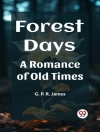In ‘Captain Jinks, Hero, ‘ Ernest Howard Crosby presents a compelling satire of the military and human nature, intertwining humor with critical social commentary. Set against the backdrop of the late 19th century, Crosby employs a blend of vivid characterizations and sharp wit, effectively exposing the absurdities and contradictions of heroism. The narrative follows the misadventures of Captain Jinks, a misguided hero whose ambition ultimately leads to a comedic but thought-provoking exploration of valor and folly, revealing the complexities surrounding notions of bravery and sacrifice within a militaristic culture. Crosby, an outspoken critic of war and a proponent of peace, was influenced by his own experiences and the socio-political climate of his time. As a member of the Anti-Imperialist League and a dedicated social reformer, Crosby’s views on the futility of war and the glorification of military figures permeate the text. His literary career often highlighted the absurdities of societal norms, making this novel a powerful reflection of his ideals and a critique of the conventional narratives surrounding heroism. ‘Captain Jinks, Hero’ is not merely an entertaining read; it is a crucial exploration of the human condition and the ethics of war. Recommended for readers seeking a blend of humor and critique, Crosby’s work invites reflection on the true meaning of heroism while challenging readers to reconsider the societal values that shape our perception of courage and honor.
Over de auteur
Ernest Howard Crosby was a distinguished American author and social reformer of the late 19th and early 20th centuries, born on October 4, 1856, and passing on January 3, 1907. His literary contributions are often overshadowed by his political activism and advocacy for peace, but his works, including ‘Captain Jinks, Hero’ (1902), remain significant for their satirical critique of militarism and the absurdity of war. Crosby’s literary style combines wit with a strong moralist position, reflecting his dedication to non-violence and his disillusionment with American imperialism, particularly during the Spanish-American War. Educated at Harvard Law School, he pursued a career in law and diplomacy, serving as Judge of the International Court in Egypt. However, his experiences abroad and exposure to the ideals of Leo Tolstoy propelled him towards social critique through literature. Crosby also penned several works on Tolstoy and nonresistance, but ‘Captain Jinks, Hero’ stands as his most accessible foray into fiction, offering a keen insight into his ideals and the era’s socio-political climate. This novel, now a historical artifact, encapsulates Crosby’s commitment to peace and his subtle mastery of satirical narrative. His life and writings continue to attract scholarly attention for their contributions to American social and literary history.












